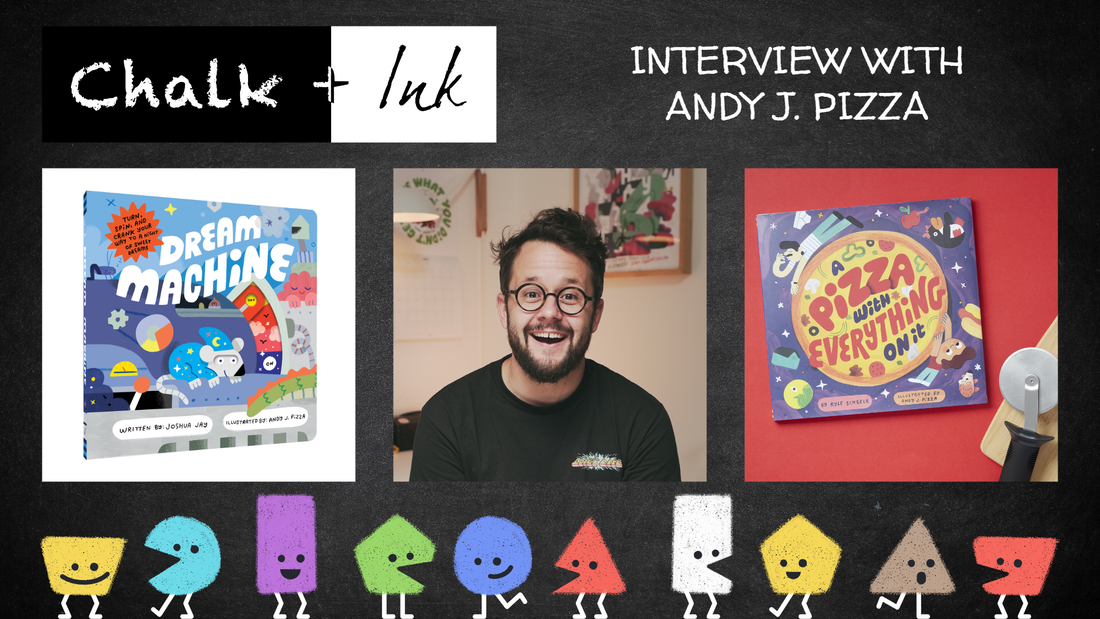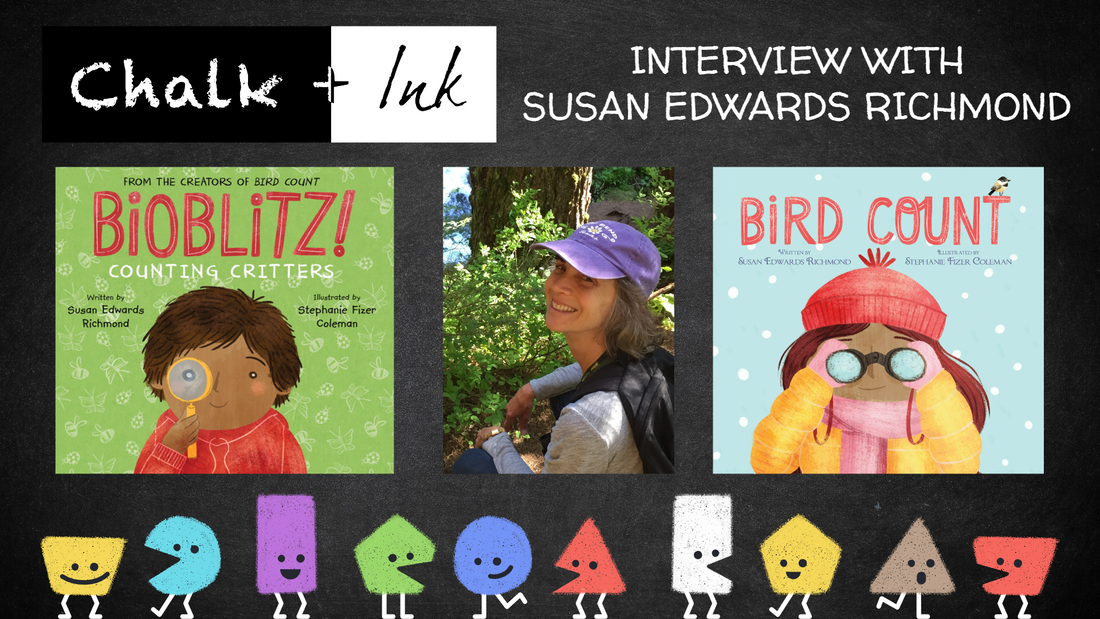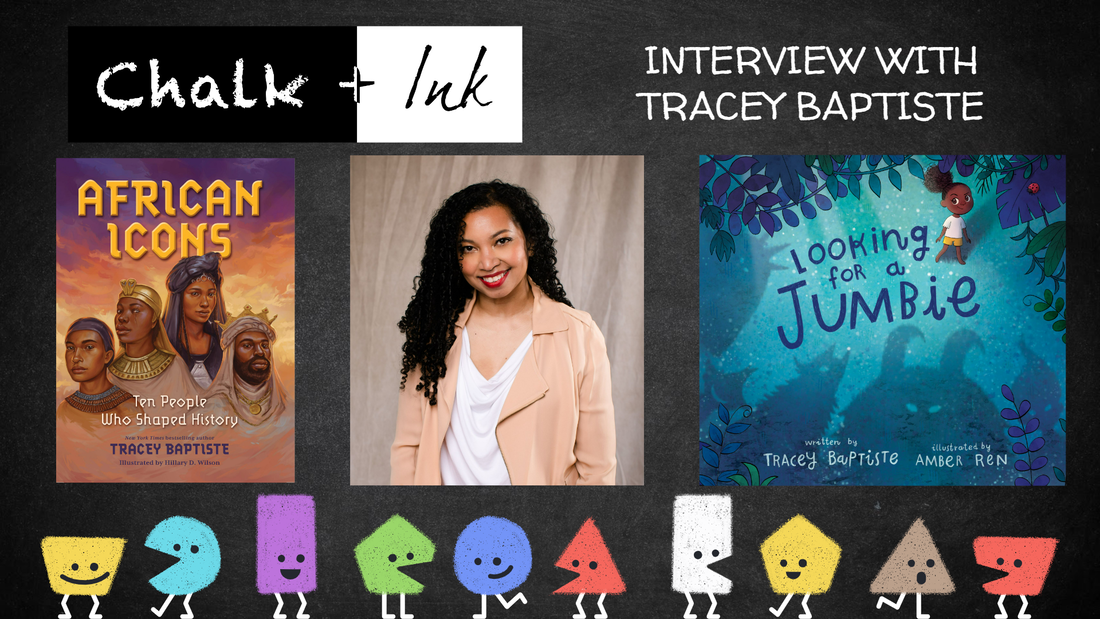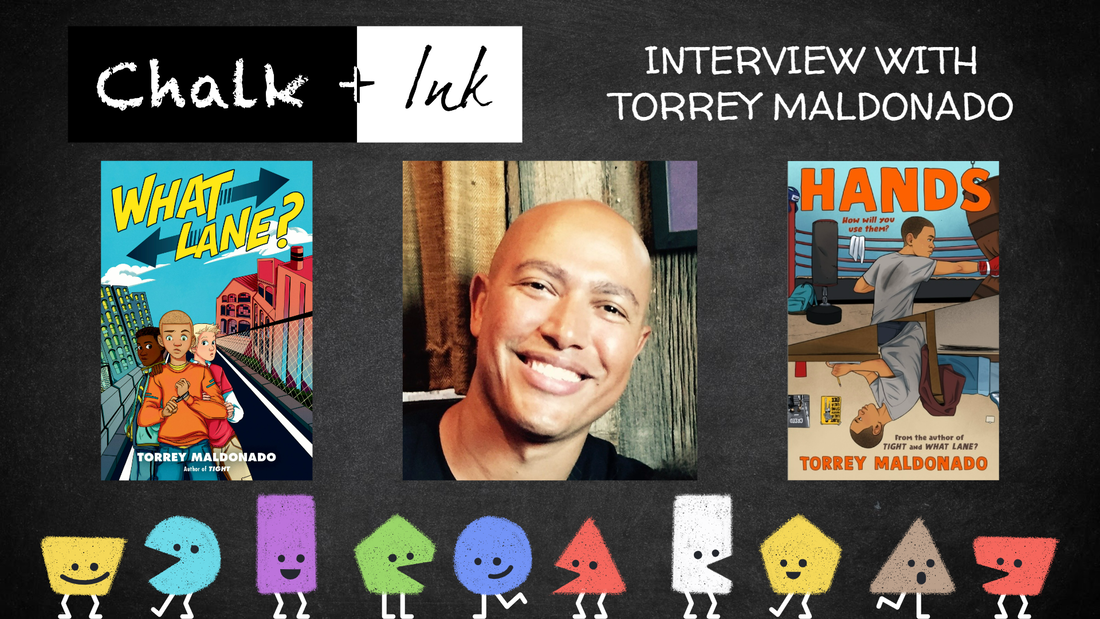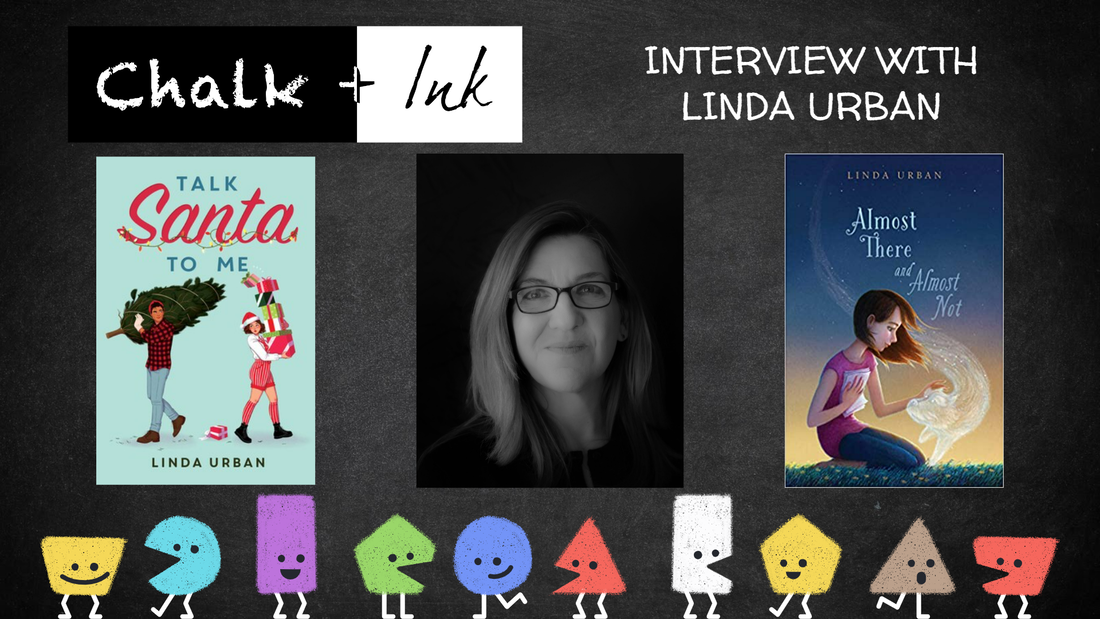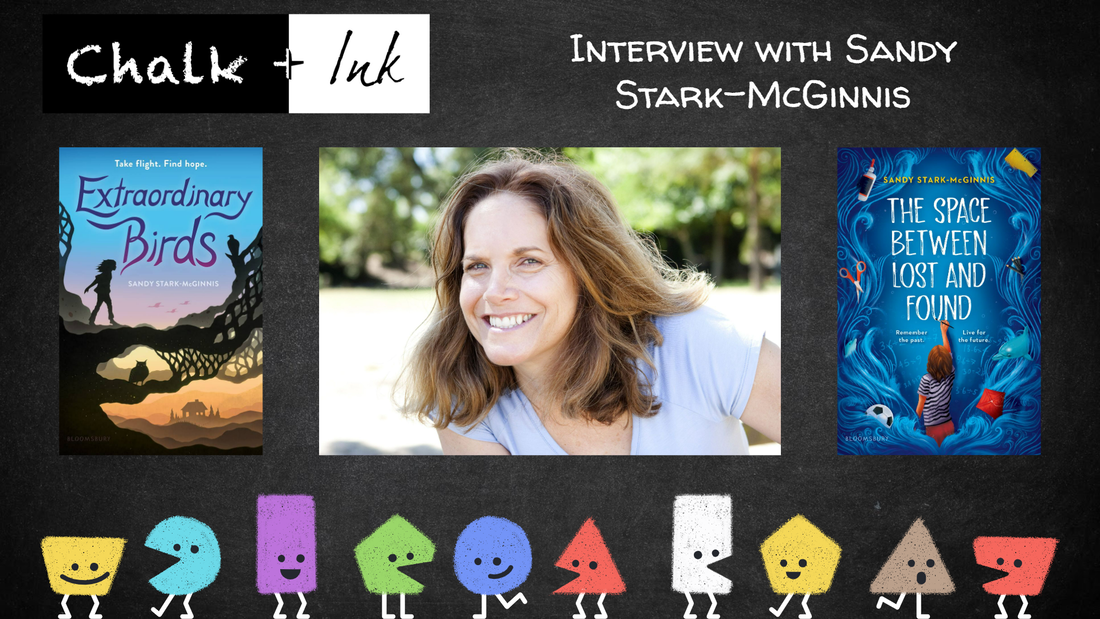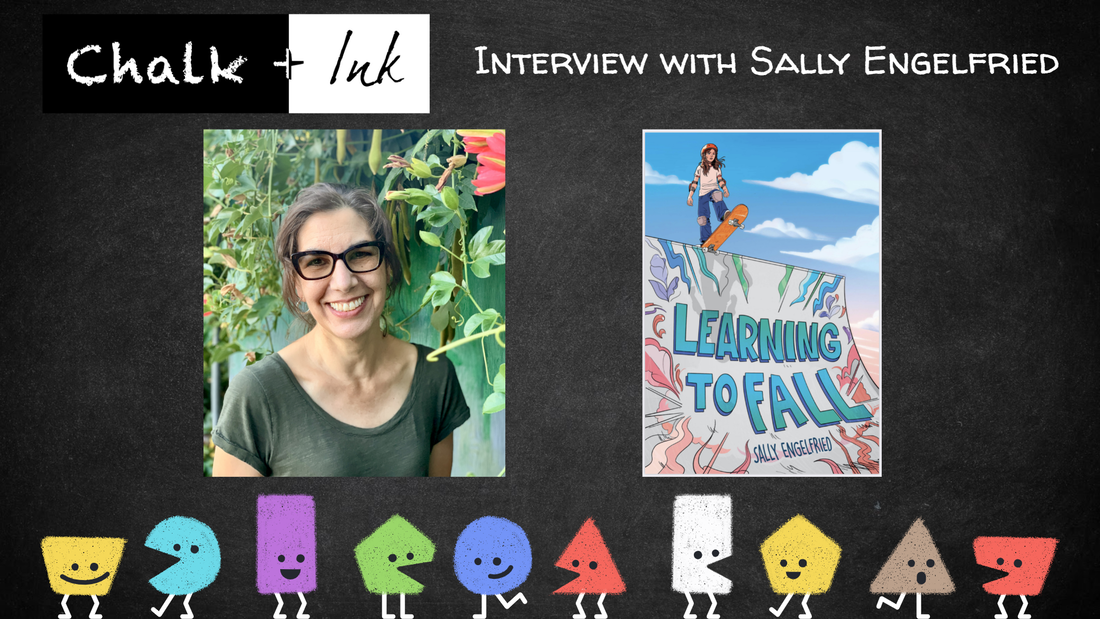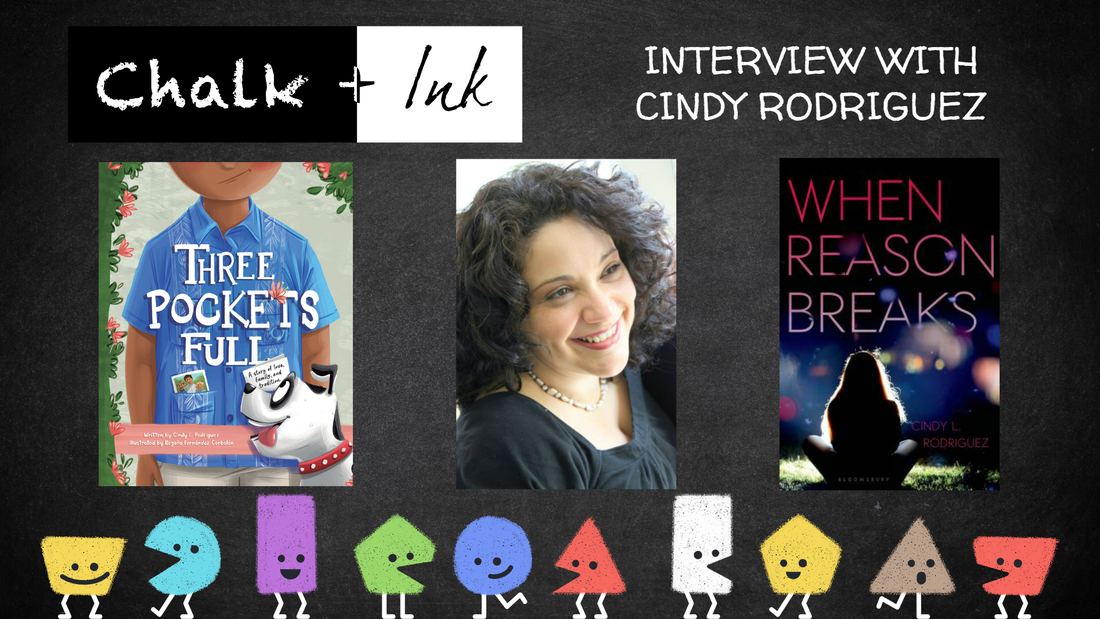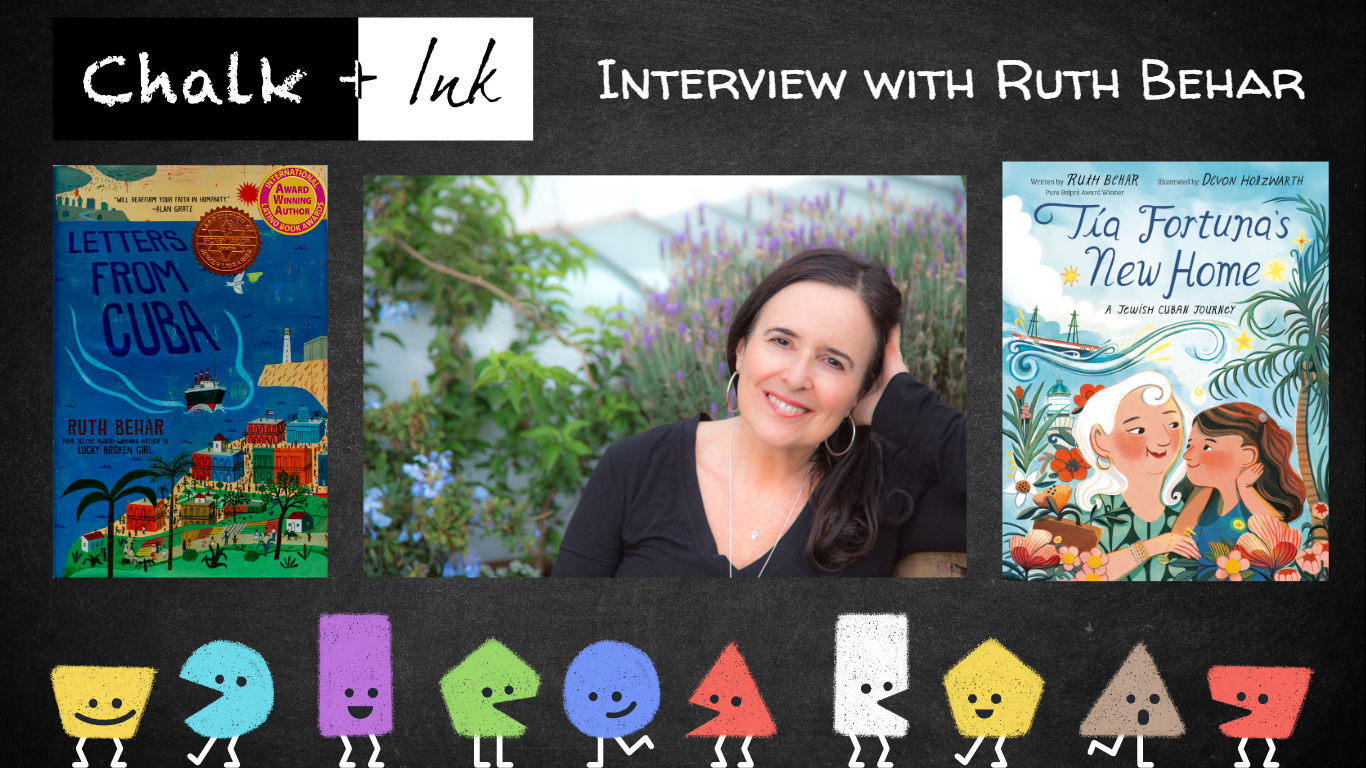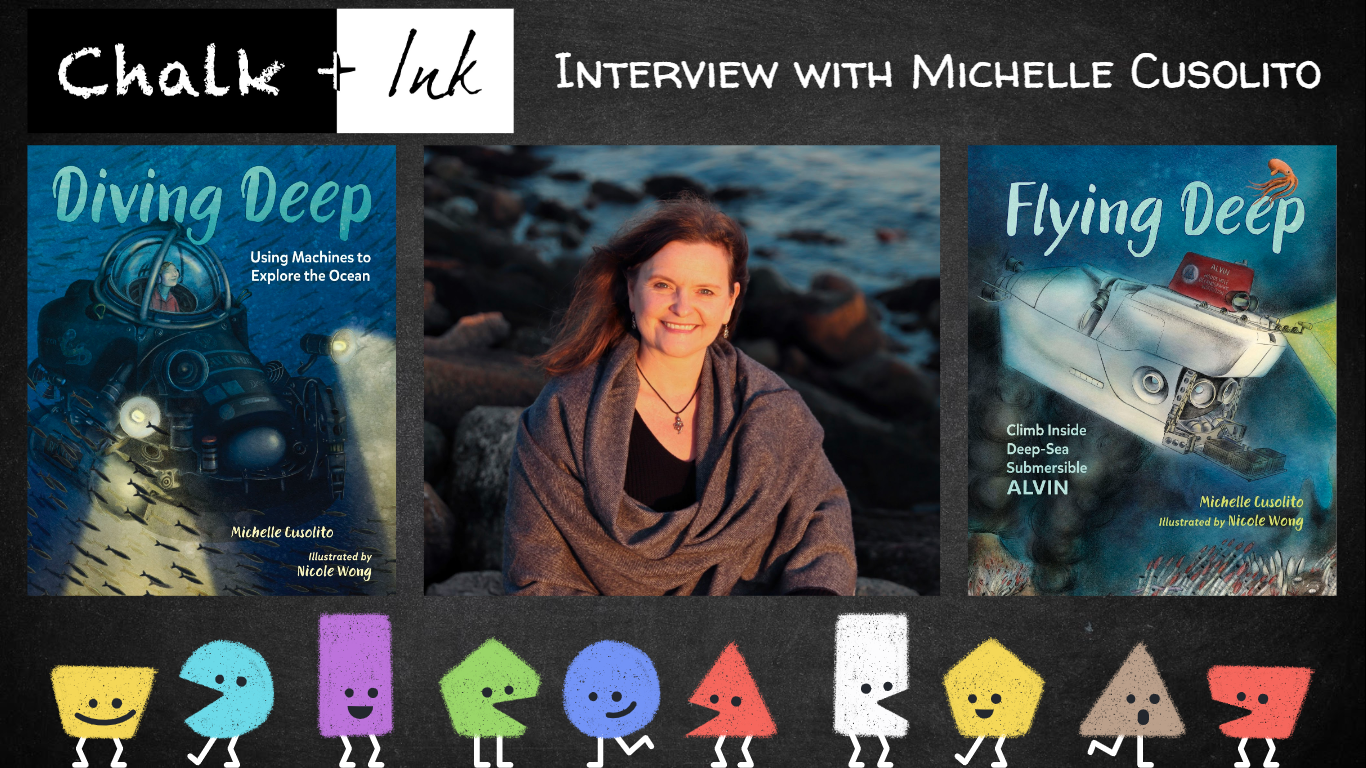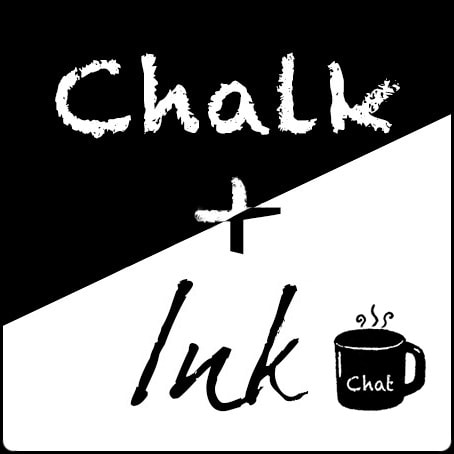|
When unforgettable moments happen, they need to be celebrated. Thanks to Andy J. Pizza, Chalk + Ink exists. So, it's only fitting that for the fiftieth episode Chalk + Ink celebrates Andy and what he gives to the creative world week in and week out. We talk about the definition of creativity, what it means when art works, and tips for creating a successful podcast. Unlike most people who define creativity as something new, for Andy creativity is about sustaining humanity. We need stories to be fresh, updated, and relevant, to keep us captivated, but as creators we don't need to reinvent the wheel. For more on storytelling, check out Brian McDonald's Invisible Ink or listen to his podcast You Are a Storyteller. Andy then moves on to explaining that art only works if it moves people from one emotional state to another. He dives deep into this topic on his 391st podcast episode-"How to Move People with Your Creative Work on a Deeper Level." Definitely worth a listen, as are all of his Creative Pep Talk episodes. In order to create a successful podcast, Andy recommends creators do the following three actions: 1) Podcast Consistently for a Long Time Andy's podcast, Creative Pep Talk, picked up steam in its third year. 2) Niche Down Focus on a small group of people. Make the content for those people outstanding so that they convert people who aren't like them into listeners. 3) Speak on Other People's Podcasts All the spoils of creativity "are in locking arms with your peers." So how does Andy get everything done? He relies on his creative team, which includes his wife, Sophie Miller, and his agent, Ryan Appleton, and he makes the most out of his energy clock. For more on making the most out of one's own energy clock, read Molly Fletcher's The Energy Clock or listen to her talk about her book here. If you aren't familiar with Andy's engaging children's books, be sure to check out Dream Machine and A Pizza with Everything on It. Before our next episode, be sure to read Emily Francis’s If You Only Knew: Letters From an Immigrant Teacher. It’s an epistolary memoir that shines a light on all that we have to be grateful for and on the power of educators to encourage or discourage their students. Don't have time to read it? Check out this video. One of my intentions for 2023 is to become more vulnerable, and as Andy said, fold more of myself into my art. So, I’ve been thinking about how I could do that on Chalk + Ink. That’s why in addition to assigning the homework for listeners at the end of each episode, I’m going to share with you the homework I’m giving myself. Then at the beginning of each episode, I’ll let you know the progress I made or didn’t make on my own assignment. I've already ordered The Energy Clock, and I plan on listening to one new education and/or writing podcast each month of this year. Then, if the podcast seems like a good fit, I'll reach out to the creator to see if they're interested in a swap. Have recommendations for me? Leave them in the comments below. Finally, I want to give a shout out to Sarah Brannen for Chalk + Ink’s podcast art. If you haven’t read Sarah’s book, Uncle Bobby’s Wedding, check it out. It’s on the ALA 2021 Rainbow List and Bank Street's Best Children's Books 2021. Happy listening!
0 Comments
In this episode, Susan Edwards Richmond talks about the importance of getting outside, cultivating a gratitude mindset, and how it take a community to create a picture book. Pretty quickly listeners will catch on that Susan Edwards Richmond lives to be outside, whether by herself in the early morning birding or with a classroom full of preschoolers. It's nature that's inspired her to write her books Bird Count, Bioblitz, and Science Play. In addition to getting outside, Susan works hard to cultivate a gratitude mindset in her own life as well as in her classroom. She talks about how using Traci Sorell's We Are Grateful is a wonderful way to begin the discussion of why it's important to be grateful year round, not just in November. Finally, Susan talks about how although it may sound trite, it takes a community to create a picture book. Not only does she talk about collaborating with an editorial team, she talks about the importance of listening to professional critiques whether those come from critique group members, editors, agents, or other publishing professionals. If people take the time to critique your manuscript, it's because they see potential in it. So, listen. As we talked, we discussed the following titles: Braiding Sweetgrass, Miss Rumphius, Finding a Dove for Gramps, Octopuses Have Zero Bones, and Susan's forthcoming Night Owl, Night. Susan thinks all early elementary classrooms should have these books: Be a Tree by Maria Gianferrari Susan loves how this book teaches readers all about trees from the tippy-top to the roots, takes you around the world, and teaches people how to be communal like trees. Tree Hole Homes: Daytime Dens and Nighttime Nooks by Melissa Stewart Susan loves the concept and the art, which the illustrator created on actual pieces of wood to incorporate wood's natural grain. Not only does Susan explain that this book is a must-have because it teaches about habitats and animal facts, she gives lists lots of fun classroom activities to accompany this title. Same, Same but Different by Jenny-Sue Kostecki Shaw Two pen pals, one from India and one from United States both have commonalities but they write about the unique aspects of their lives like taking a public bus to school versus riding in a school bus. Susan's students really identify with this book. After listening to Susan talk, I ordered it from one of my favorite local bookstores, The Silver Unicorn. For upper elementary classrooms, Susan recommended Leslie Bulion's Serengetti: Plains of Grass. It's a spectacular book with beautiful, lyrical, primary text and includes informative secondary text with facts about animal habitats and interactions. If you'd like to win one of Susan's signed picture books or a free picture book critique, leave a comment below. Want to support the podcast? Leave a review wherever you listen to your podcasts, boost this episode on your favorite social media platform or go to buymeacoffee/chalkandink and with a simple click you can spread Chalk + Ink cheer. As always, many thanks to Sarah Brannen for Chalk + Ink’s podcast art. If you haven’t read Sarah’s book, Uncle Bobby’s Wedding, check it out. It’s on the ALA 2021 Rainbow List and Bank Street's Best Children's Books 2021. Happy listening! Chalk + Ink: Episode 48; Sticky Notes, Think Boards, and Checklists, Oh My! With Tracey Baptiste12/16/2022 This is such a rich episode it's near impossible to sum it up in a succinct manner. Sure, Tracey talks about organizational tools, and really let's be honest, are there any teachers who write and writers who teach out there who don't want to gush about office supplies? But that's far from all. We dig deep into accessing the subconscious and debunking historical "facts" that dehumanize people. First, the office supplies. Okay, sticky notes and checklists, those are part of our DNA. But a think board with a QR code that you can snap pictures of so that you can access your brainstorms no matter where you are?! I mean, come on. It doesn't get much better than that. The subconscious. How does Tracey nurture it? She feeds it regularly by exercising daily whether it's walking and yoga, or a ninety-minute ballet class. That way she never gets stuck. How does Tracey access it? She asks it for help with a specific problem, moves on, and trusts that the answer will come when the time is right. When Tracey researched her must-have collective biography, African Icons she uncovered many fascinating facts. But they weren't all fun. In fact, one was infuriating. We've been sold this idea that before slavery, African society didn't exist, that the continent consisted of a bunch of savage hunter and gatherers. And that somehow because of this lack of society, one could understand why Europeans invaded and enslaved Africans. But the truth is Europe and Africa had a long shared history, where Europeans and people from other parts of the world, travelled to Africa to study in their world-famous libraries. On the note of debunking historical myths, Tracey recommends Kate Messner's History Smashers series. I couldn't agree more. These titles fly off my shelves and spend the school year travelling from one students' hands to the next. Tracey also recommends Renée Watson's Ryan Hart series because her books feel like a hug. These are great books for beginning readers with a caring, loving tone. My favorite Watson title is Some Places More Than Others because it talks about pregnancy loss and showcases how miscarriages affect the whole family. When Tracey delves into YA titles, she focuses on Afrofuturism and horror. She enjoys books by Tracey Deonn, Lamar Giles, and Tiffany Jackson. For YA historical fiction, Tracey suggests people read Meg Medina's Burn, Baby, Burn. Before closing out 2022, I want to shout out Heather Kinser for supporting Chalk + Ink on Buy Me a Coffee. Heather wrote, "I just want to show my appreciation. I'm a picture book writer who discovered the podcast earlier this month, and I'm really enjoying the in-depth conversations." Thanks for making my week, Heather! Remember, if you want to be entered to win one of Tracey's gripping books, leave a comment below. And as always, special thanks to Sarah Brannen, for Chalk + Ink's art. Happy listening, everyone! It's hard to say which was more fun, talking with Torrey or reading his novels. But it's safe to say that if you're in his classroom or holding one of his novels in your hands, he has your back. Not only will he support you, but you're going to laugh a lot as you examine some tough questions. Before I jump into the episode and the tough questions we talk about, click here to get your hands on Hands, Torrey's newest novel that releases in January. Be sure to order before January 23rd, to get a signed copy. Not only will you be thrilled to put this book in your students' hands, you'll be supporting an independent bookstore in the process. Two wins with one click! Now, back to the content in Torrey's terrific episode. In addition to exploring tough questions in his novels, Torrey asks tough questions in the classroom. After I shared the questions I use while discussing novels, Torrey shared the questions he asks his students to think about before, during, and after his lessons: 1) What are we learning? 2) How do you know what you're learning? 3) Why does it matter? 4) What do you do with what you're learning? Here's my question-who wouldn't want to be in a dynamic learning environment like that? We also take a deep dive into the multidimensionality of his characters, which stems from the multidimensionality of his students and the mentors he has had throughout his life, including his beloved mother and grandmother. Instead of titles, Torrey recommends that elementary and middle school classrooms have books by the following authors: Kelly Starling Lyons Tameka Fryer Brown Sharon Langley Jacqueline Woodson Eric Velasquez Jerry Craft Renée Watson Olugbemisola Rhuday-Perkovich Derrick Barnes Gordon C. James Charles R. Smith Jr. During the podcast, we also mentioned Tracey Baptiste's work. If you want to be entered to win a copy of one of Torrey's amazing signed books, leave a comment below and fill out my site's contact form. As always, many thanks to Sarah Brannen for Chalk + Ink's podcast art. Happy listening! On today's episode, Linda Urban highlights the importance of embracing joy, specificity, and small moments. As creators, the moment we say we could, should, or have to do something, the moment we think it counts, constraints stymie our creativity. So, Linda embraces joy and pays attention to what she's paying attention to. When she learned about Santa school, she didn't second guess herself, she signed up! That led to her heartwarming, holiday novel, Talk Santa to Me. I fell in love with her middle grade novel, Almost There and Almost Not, because of a specific, small moment in the book. There's a ghost dog in the book. Need I say more? Anyway, there's a lovely scene where the dog falls asleep resting its muzzle in the crook of California's legs, and California knows everything will turn out right. That is EXACTLY how I felt anytime Buck fell asleep nestled up in the crook of my legs with his head resting on my calves. I can't wait to book sell this novel to my class. Linda recommends the books below because they validate both the huge life changing things and the tiny small things like eating sunflower seeds, or the made up language that you had when you were a little kid, or the silly pet phrases people have for one another, that specificity is what makes a story authentic. By the way, Linda's specific answer to the book recommendation question raised the bar to a whole, new level. Ghost by Jason Reynolds(middle grade) I love this book and the series. Can't recommend it enough. Educators, do heed Linda's advice about previewing. Chicken Soup, Boots by Maira Kalman(picture book) I can't wait to buy this book based on Linda's recommendation. Everything Sad is Untrue by Daniel Nayeri(young adult) Tried this once before but didn't get through it. May pick it up again over December break or get it through Libby based on Linda's praise. As always a shout out to Sarah Brannen for Chalk + Ink's podcast art! Happy listening! Chalk + Ink: Episode 45; Parallels, Plot, and Point of View with Perseverant Sandy Stark-McGinnis11/4/2022 The passionate and perseverant Sandy Stark-McGinnis talks about parallels, plot, and point of view. It might seem strange that I'm highlighting the fact that Sandy dives into the parallels between writing and teaching when that's exactly what Chalk + Ink is about. But listening to Sandy, the similarities between the two crafts really struck me-particularly when she talks about how getting to know her students parallels her process for getting to know her characters, and how in order to be successful as a teacher and a writer, she has to be willing to do the work and struggle to take tiny steps forward. Sandy centered her first two novels, Extraordinary Birds(which I absolutely loved) and The Space Between Lost and Found, on character. She talks about how she focused on her characters' wounds, just like Lisa Cron's craft book Story Genius suggests. But now, for her third novel, she's zeroing in on plot and that's a whole other puzzle to perseverate through. Finally, we both prefer writing in first-person point of view more than third-person point of view. Which do you prefer? In addition to Story Genius, we also talk about other titles such as Kindness is a Kite String by Michelle Schaub, Feathers: Not Just for Flying by Melissa Stewart, and The Tiger Rising by Kate DiCamillo. Sandy recommends that all upper elementary classrooms have Shine On, Luz Veliz by Rebecca Balcárcel in their library as well as Sara Zarr's A Song Called Home. We both agreed that Sara's book is mini-master class on nuance and character. Leave a comment below to be entered to win one of Sandy's marvelous novels. Want to show me you like Chalk + Ink a latte? Go to buymeacoffee.com/chalkandink and with one single click you can support the podcast-no subscription necessary. Finally, I want to give a shout out to Sarah Brannen for Chalk + Ink’s podcast art. If you haven’t read Sarah’s book, Uncle Bobby’s Wedding, check it out. It’s on the ALA 2021 Rainbow List and Bank Street's Best Children's Books 2021. Happy listening! The versatile and vulnerable Sally Engelfried talks about productive weekends, innovative ways to use a writer's notebook, how to find a story's emotional core and so much more! Full disclosure... I love routines and systems. That's why I'm all about learning about new routines that I might be able to incorporate that will help me make the most out of my wonderful life. Sally explains that she's not a morning person, so she makes the most out of her weekends. She spends Saturdays and Sundays writing. She starts off with a three-hour chunk in the morning. Then, she takes a lunch break and writes for another two hours. Lastly, she does a quick fifteen-minute chore, and then gets in another hour. She accepts that some chunks of time will be more productive than others, and that some chunks of time may be spent on tasks such as marketing, instead of creating. She finds that this structured system coupled with acceptance, works really well for her. I don't know about you but the pressure around having a writer's notebook causes me some anxiety. Maybe it's because as I said above, I crave structure and the term writer's notebook makes me feel like there should be some inherent notebook structure. But Sally blasts that worry to pieces throughout this interview, revealing different ways she uses her notebook throughout our discussion. Finally, Sally is vulnerable and honest. She talks about throughout her writing journey, she has wondered if she's wasting her time writing because there's no guarantee that all the hours she puts into crafting a manuscript will result in a published book in her hands. But she's found a way to put that worry to rest using her writer's notebook. In her notebook, she explores why she has to write a certain story. She examines what's going on emotionally in her current life that's propelling her to bring a specific character in a challenging situation to life. For crafting novels that sell, Sally recommends Story Engineering: Mastering the 6 Core Competencies of Successful Writing by Larry Brooks. Check out Sally's Learning to Fall to see how she embraced Brooks' orphan, wanderer, warrior, and martyr archetypes. Sally thinks that all elementary libraries should have the following books: The Panda Problem by Deborah Underwood This super-fun read is a must have for writer's workshops. It turns out it's a big problem if your story doesn't have a problem. Merci Suárez Can't Dance by Meg Medina I've only read the first Merci book, but Sally is in love with all three, particularly this book, which is the second one in the series. Jennifer Chan Is Not Alone by Tae Keller I love Tae Keller's first two novels, The Science of Unbreakable Things and When You Trap a Tiger, but Sally insists I need to move this title to the top of my to-be-read stack. This mystery is about bullying and shaming people for being different. Reading this book will definitely encourage empathy for others. In addition, Sally loves developing the children's horror section in her library. She recommends stocking up on titles by K.R. Alexander, Mary Downing, and Dan Poblocki. Want to win a signed book or a thirty minute author visit with Sally? Leave a comment below. Want to support the podcast? Write a review wherever you listen to your podcasts, share this episode on social media, tell you family and friends about the podcast, buy me a latte, or become a Chalk + Ink Patreon supporter. Happy listening! On today’s episode the positive and perseverant Cindy Rodriguez talks about the importance of embracing opportunities, growth mindset, and developing relationships in and out of the classroom. Cindy talks about her Robert Frost fork in the road moment. She had one traditional book published but no other forthcoming projects. She could have quit writing after reaching her goal of becoming a published author and focused on becoming the best educator possible. Instead, after hearing Kwame Alexander speak, she decided to just say yes to whatever writing opportunities came her way. This meant she had to embrace a growth mindset. Could she write a novel about volleyball even though she knew nothing about volleyball? Yes. Could she write a graphic nonfiction novel even though she had no idea how to write a graphic novel script? Yes. Finally, Cindy talks about the importance of developing relationships in and out of the classroom. Cindy and I talk about the fact that if educators intend to teach students anything, that the educator must first develop a relationship with her students. Without that relationship foundation, students won't learn. Outside of the classroom in the writing world, relationships are just as important. Cindy worked hard joining Facebook work-for-hire groups and connecting on Twitter with editors who had work-for-hire projects. It paid off! Cindy has published several work-for-hire titles including The Doomed Search for the Lost City of Z and the forthcoming book The Mount Everest Disaster of 1996. Cindy recommends that middle school classrooms and libraries have the following titles: The Last Cuentista by Donna Barba Higuera In addition to being the 2022 Newbery Winner, The Last Cuentista pairs well with The Giver by Lois Lowry, a standard book in many middle school ELA curriculums. Treasure Tracks by S.A. Rodriguez Unlike The Last Cuentista, this book is a fun read. It's about a boy who lives in the Florida Keys, and he's a deep sea diver. His grandfather has been searching for Spanish gold and when his abuelo gets sick, the main character takes charge of the search. Cindy says this book is perfect for reticent readers because it's short and an easy read. City Spies by James Ponti This is a series, and I read one of the titles over the summer, too. I agree with Cindy that these books are definitely worth picking up. MI6, the British version of the CIA, recruits 12-16-year-olds into their agency to go on missions for peace and justice. A great pick for kids who think outside the box. If you want to be entered to win a book from Cindy or a thirty-minute virtual classroom visit with her, leave a comment below. If you want to give me a boost and buy me a latte, click here. If you want to become a Chalk + Ink Patreon supporter, click here. Finally, I want to give a shout out to Sarah Brannen for Chalk + Ink’s podcast art. If you haven’t read Sarah’s book, Uncle Bobby’s Wedding, check it out. It’s on the ALA 2021 Rainbow List and Bank Street's Best Children's Books 2021. Happy listening! The flexible and fascinating Ruth Behar talks about the importance of solitude, storytelling, and vulnerability in our teaching and writing practices. In order to be an effective teacher and an effective writer, we need solitude. For our teaching practice, solitude enables us not only to plan lessons, but it also gives us time to reflect on what went well and what could have gone better. Solitude also rejuvenates us, giving us time to soak up silence. For our writing practice, solitude provides us with opportunities to create and reflect on what's working well in our manuscripts, and what could work better. Solitude also rejuvenates us, giving us time to immerse ourselves in craft, faraway from fielding rejections and marketing mania. In order to be an effective teacher and an effective writer, we need to tell stories. When we share stories with our students, they connect to us as human beings. They use the shaka hand signal or shout, "Me, too," to let us know they have experienced the same emotion or ocurrence. When we put stories onto the page, we allow readers wherever they are, to connect with us, to feel validated, and to create their own fictive dreams. Finally, as teachers and writers, we have to be vulnerable. Ruth explains that students know the difference between a teacher who deeply cares for them and a teacher who shows up for the paycheck. Just like students, readers know which authors have put their heart on the page, and which authors are hiding something, not letting readers into their hearts, not quite ready to be completely vulnerable. Readers discard closed hearted books in search of a different activity where they feel seen. Ruth thinks the following middle grade books should be available for students in classrooms: The Hundred Dresses by Eleanor Estes (1945 Newbery Honor Book) This classic antibullying book is a great way to discuss the implications of complicity. The repercussions of seeing mistreatment of someone and not stopping it. This discussion brought me back to when I taught first grade in Spanish in Chelsea because I read Los cien vestidos aloud to my class every year. Number the Stars by Lois Lowry (1990 Newbery Winner) Number the Stars tells the story of the Danish Resistance during World War II through the eyes of Annemarie, a ten-year-old girl, whose family is harboring her best friend, Ellen, who is also Jewish. This book pairs well with Ruth's Letters from Cuba because Ruth's main character Esther, is also Jewish, and flees Poland on the eve of World War II. Letters from Rifka by Karen Hesse (1992 Sydney Taylor Award) When Ruth wrote Letters from Cuba, she studied Letters from Rifka because it's an epistolary novel about a Jewish girl fleeing Russia and anti-Semitism in 1919. Refugee by Alan Gratz (2018 Sydney Taylor Award, NYT Bestseller) Three different child refugees from three different time periods: 1930s, 1994, and 2015, escape their homelands in search of refuge whose stories come together in the end of the novel. Brown Girl Dreaming by Jacqueline Woodson (2015 Newbery Honor) Ruth said Jackie Woodson is a novel in verse master. I couldn't agree more. My students love Jackie's Before the Ever After. In addition to Letters from Cuba, we also talked about Ruth's other children's books in the podcast: Lucky Broken Girl, Tia Fortuna's New Home, and Pepita Meets Bebita(coming soon), which she created with her son. We also chatted about one of Ruth's adult titles, The Vulnerable Observer as well as another adult book, Voices From Chernobyl: The Oral History of a Nuclear Disaster written by Svetlana Alexievich. Alexievich won the Nobel Prize for this book. If you'd like to win a signed book or a 30-minute classroom visit from Ruth, leave a comment below before September 30th. If you want to support the podcast, click here. If Chalk + Ink has made you a better writer and/or teacher and you'd like to share your experience on our special 50th episode, fill out this form by September 30th. For our next episode, be sure to read Cindy Rodriguez’s delightful new picture book Three Pockets Full. Give it a read before Cindy’s interview releases on Friday, October 7th. Happy listening! Chalk + Ink: Episode 41; Diving Deep Into Struggles, Successes, and Synergy with Michelle Cusolito9/6/2022 The talented and tenacious Michelle Cusolito talks about the importance of writing with our students, the power of picture book dummies, and how stepping outside of our comfort zone enriches our creativity. When Michelle took an educational workshop about how to teach poetry to her students, she realized she needed to write alongside her students so that she could share her process with them. This led to ten-minute writing bursts with her students. When they wrote, she wrote. It didn't matter if it was poetry or prose, brainstorming or revision. If they did it, she did it. If you're a teacher who wants to write, Michelle recommends starting by writing ten minutes a day with your students. The synergy that arises will be amazing. Last season April Jones Prince and Marcie Flinchum Atkins sang the praises of picture book dummies for various reasons. In this episode, Michelle gives us yet another reason to try out a dummy. When Michelle knew the beginning and the end of Diving Deep, but not the middle, she made a dummy. That way she knew exactly how many spreads she had to work with. Read Michelle's post for Nonfiction Fest and watch her video about her dummy here. Click here to access the teacher's guide for Diving Deep. Michelle talks about how when we step outside of our comfort zone, our creativity increases. When she travels, being in a new place jumpstarts her creativity. Michelle had the amazing opportunity to join the scientists at Woods Hole Oceanographic Institute on a two-week research trip studying the Atlantic Ocean's twilight zone off the coast of Spain. While she was on the ship, there were four storms, which made Michelle quite anxious. Once again she was out of her comfort zone, and her creativity flowed. She wrote various blogposts to explain the different types of research occurring on the research vessel. Click here to read "The Great Migration," which explains the daily movement of various sea animals from the twilight zone to the ocean's surface to eat at night and then back down to the ocean's dark depths to hide from predators. Michelle thinks elementary classrooms should have the following books: Giant Squid by Candace Fleming not only because of the spectacular text and art but also because of the sense of wonder it can inspire in kids. Otis and Will Discover the Deep: The Record-Setting Dive of the Bathysphere by Barbara Rosenstock is a biography about the first people who dove deep into the ocean. The Scientists in the Field series from Houghton Mifflin featuring books about a wide variety of topics written by authors such as Sy Montgomery, Loree Griffin Burns, and Mary Kay Carson. Some of Michelle's favorite titles in the series are Life on Surtsey by Loree Griffin Burns, and The Octopus Scientists by Sy Montgomery. In addition to books for kids, Michelle recommends that every elementary teacher have Nonfiction Writers Dig Deep by Melissa Stewart. I agree wholeheartedly! Not only is Michelle an amazing author and educator, she is also very generous. She's creating a five-minute Let's Write video that educators can use in their classrooms. Become a Chalk + Ink Patreon supporter, and you will have access to Michelle's videos as well as videos by April Jones Prince, Marcie Flinchum Atkins, Zetta Elliott, Erin Dealey, René Colato Laínez and Lisa Stringfellow. Michelle also generously donated a 30-minute “Ask Me Anything,” Zoom call to a lucky podcast listener. There are several ways to enter: 1) Tweet or retweet this episode and be sure to tag Michelle and me, 2) Make a comment below, 3) Make a comment about the episode on our Chalk + Ink Facebook page; and 4) Become a Chalk + Ink Patreon supporter. Patreon supporters are automatically entered into each giveaway. In order to enter the giveaway, these actions must be completed by midnight on Friday, September 16th. The winner will be announced on Friday, September 23rd, on the podcast as well as on Twitter and on our Facebook page. If Chalk + Ink has improved your teaching and/or writing, I'd love to celebrate with you on our fiftieth episode. Please fill out this form by September 30th. If you'd like to support the podcast, but want to keep it simple-no recording, no subscriptions-click here to buy me a latte. Finally, please consider spread the word and letting your friends and colleagues know about the podcast. Thanks so much for your support! Happy listening! |
Chalk + Ink ChatsWant to hang out with teachers who write and writers who teach? Fill this form to join our Archives
October 2023
Categories |
